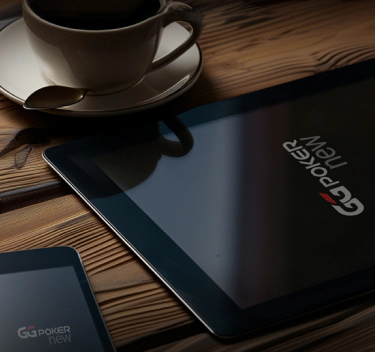Essential Tools for Analyzing Your Poker Game

Hey, you ever hear the one about the poker player who didn’t need any tools for analyzing his game? Nah, me neither, because it’s as mythical as the Loch Ness Monster, Big Foot, or the Chupacabra. In the world of cards, like in life, self-improvement is the name of the game. That journey of self-discovery begins with understanding how your game stacks up, and for that, you need the right tools.
Why? Picture this: you’ve just spent a riveting night at the poker table, your heart pounding as you played your cards right and your opponents wrong. You walk away with a healthy stack of chips and a wide grin, feeling like the master of your universe. But what if I told you that Lady Luck, that seductive yet capricious mistress, might have been the one pulling your strings tonight? Would you bet your hard-earned winnings on her long-term commitment? I didn’t think so.
It’s All In The Numbers: Hand History Analyzers
Your first partner on this quest is a type of software that has been a poker player’s bread and butter for a long time. This trusted companion? Hand history analyzers. These tools record every hand you play and allow you to dissect your gameplay under a magnifying glass.
Ever wondered how often you fold pre-flop? Or maybe how aggressive you are in late positions? A hand history analyzer can tell you this and so much more. Tools like the GGPoker exclusive PokerCraft have been helping players crunch the numbers for years. They offer features like win rate analysis, opponent tracking, and custom stats. And they are as essential to a poker player as a trusty steed to a knight.

We’ve Got The Beat: Poker HUDs
From the annals of ancient wisdom: to defeat your enemy, you must know your enemy. And this is precisely where poker HUDs, or Heads-Up Displays, come in handy. They take the data from your hand history analyzer and translate it into real-time statistics that hover over your opponents’ names while you play online.
If you’ve ever wondered how the pros seem to know exactly when to bluff or when to fold, they’re not psychic – they’re using a HUD. Armed with data about your opponents’ tendencies, you’re no longer playing blind. You’re like an eagle eyeing its prey from high above, ready to swoop in at the right moment.
The Art of Probabilities: Poker Equity Calculators
Do you remember the phrase “calculating the odds?” It’s not just some highfalutin lingo, it’s a vital part of every poker player’s arsenal. And the tool to assist you with this? The poker equity calculator.
Equity calculators, allow you to input your hand and the community cards, and then they spit out your odds of winning. They help train your brain to think in terms of ranges and probabilities – no more relying on that unreliable gut feeling.
And the best part? You don’t need to be a math whiz to use one. These tools simplify the complex calculations, letting you focus on improving your strategic decisions. Because, let’s be honest, the only time we enjoy crunching numbers is when counting our winnings.

The Science of Simulation: Poker GTO Solvers
“Is this the right move?” This question has kept many a poker player awake at night. But what if you could peek into the future and see the outcome of your decisions? Welcome to the world of GTO solvers.
Game Theory Optimal (GTO) solvers allow you to input specific scenarios and see how they play out. You can adjust variables like stack sizes, positions, and opponent tendencies. The solver then runs simulations to show you the best strategic move.
While they sound like a cheat code for poker, remember that they are just tools, not magic wands. Understanding and interpreting the output requires time and practice. But once you’ve got the hang of it, you’ll be one step ahead of the game.
The Magic of Mindset: Mental Game Coaches
Not all tools are about numbers and statistics. Remember, poker is as much a mental game as it is about the cards you’re dealt. Poker coaches can help you deal with the mental aspects of the game, like tilt, aid with managing anxiety, and assist you as you learn to improve your focus.
Why is this important? Think of the time you lost your cool after a bad beat, throwing caution to the wind and your chips to the opponent. Or the time you folded a winning hand because the pressure got too much. A mental game coach helps you develop the mental resilience to overcome these obstacles. They may not be software, but they are an essential tool nonetheless.
Conclusion: The Winning Hand
Poker is not just a game of chance. It’s a mental battle, a test of skill, and a dance of strategies. And in this dance, knowledge is your rhythm, analysis your footwork, and these tools your dance partners.
Hand history analyzers, poker HUDs, equity calculators, GTO solvers, and mental game coaches – each of these tools brings something unique to the table. They help you understand your strengths, iron out your weaknesses, and ultimately elevate your game.
But remember, tools are only as good as the hands that wield them. It’s up to you to take these instruments, learn from them, and forge your path to poker stardom. After all, the game is not just about having the best cards; it’s about playing your hand the best.
